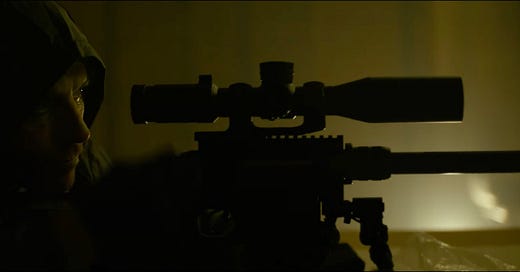First impressions of David Fincher's The Killer, and the end of a bargain-movie era
The "Fight Club" director's craftsmanship remains strong, his action kinetic, his work with actors remarkable. But in this misfire, he doesn't have a story worth telling.
Director David Fincher’s new feature film for Netflix, The Killer — the episodic story of a doggedly professional assassin whose discipline begins to disintegrate under pressure — is as cold as a flight of whiskeys without any of the fun of a lingering buzz.
Keep reading with a 7-day free trial
Subscribe to Give Me Some Light to keep reading this post and get 7 days of free access to the full post archives.




